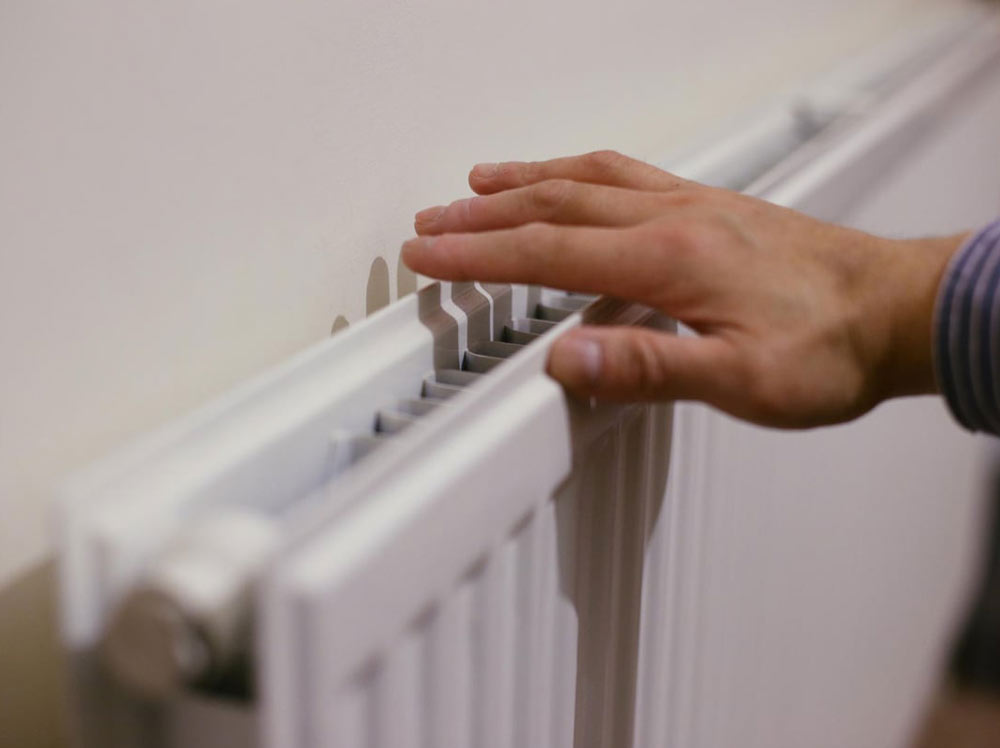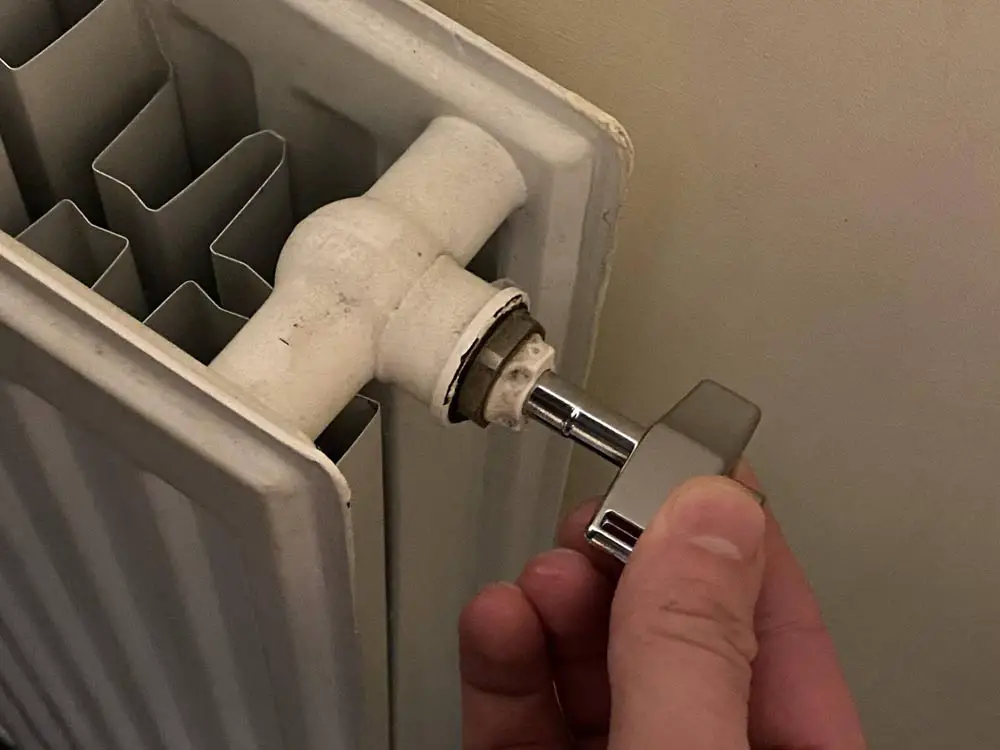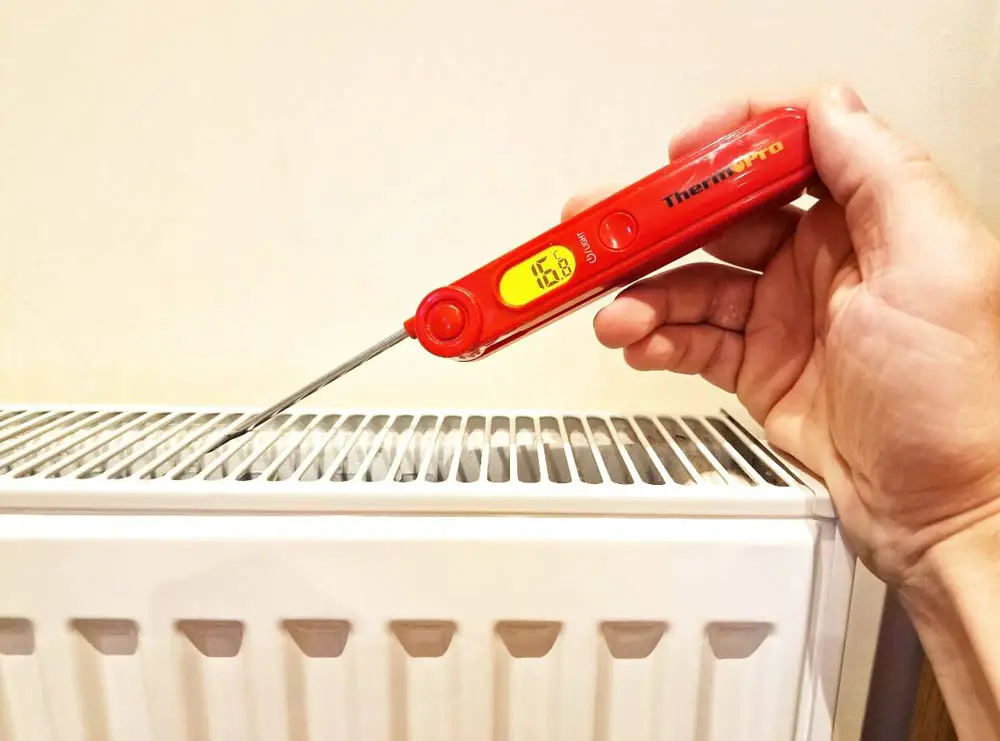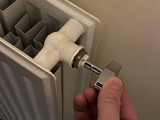As temperatures begin to drop and winter looms nearer, keeping our homes warm and comfortable becomes a more pressing priority.
Radiators play an important role in this, but over time air trapped inside can accumulate, hindering their efficiency. This is when bleeding your radiators becomes necessary.
The important question to answer is 'How often should you bleed radiators?'
Well, the short answer is that to ensure optimal performance and prevent potential issues, you should perform this maintenance task at least once a year, preferably when it gets cold enough to start using your radiators on a regular basis.
However, other signs to look out for that you need to take action and bleed your radiators are:
Check Your Radiators for Cold Spots

Image credit: lincolnshireworld.com
When the top half of a radiator feels colder to the touch than the bottom, when the heating is on, it is a clear indication of trapped air within the system.
Air tends to rise and accumulate at the top of the radiator, preventing hot water from circulating properly. As a result, the bottom part will still heat up, while the upper section remains cold. This issue leads to uneven heat distribution and ultimately causes reduced heating efficiency.
Listen Out for Radiator Gurgling Sounds

Image credit: reddit.com
Gurgling sounds in a radiator typically indicate the presence of trapped air within the central heating system. When air gets trapped in the radiator, it disrupts the smooth flow of hot water, causing it to bubble and gurgle as it tries to pass through the air pockets.
When you bleed a radiator using a radiator bleed key, it releases all the trapped air through the bleed valve, the radiator can then refill with water restoring proper heat circulation and eliminating the gurgling noises.
Keep an Eye on Radiator Heating Times

Image credit: housewarm.co.uk
When the heating takes longer to reach the desired temperature than usual, it could be an indication of various potential issues with the heating system or one or more of the radiators themselves.
One common cause is the accumulation of air in the radiators, hindering the efficient flow of hot water, and thus slowing down the heating process. This can be simply rectified if you bleed your radiator.
Additionally, a malfunctioning thermostat, a clogged or dirty filter, or problems with the boiler or circulation pump can also contribute to this problem.
It is important to investigate the specific cause promptly to prevent further complications and ensure the central heating system operates optimally.
Frequently Asked Questions
Why should you bleed your radiators?
Bleeding your radiators is an important task to ensure efficient heating within your home. Over time, air can build up in the radiators, and these air pockets obstruct the smooth circulation of hot water within them. As a result, your radiators may not emit heat evenly, leading to colder areas in your living spaces.
By bleeding the radiators with a radiator key, you release this trapped air allowing the hot water to flow unobstructed, ensuring consistent heat distribution. This not only improves the overall performance of your central heating system but also helps to save money on your energy bills, due to the increased efficiency.
What happens if you don't bleed your radiators?
If you neglect to bleed your radiators, especially when there is trapped air within one or more of them, several issues may arise that will ultimately affect the efficiency and performance of your heating system.
The inefficiency that is caused by not bleeding your radiators can lead to decreased warmth, making it difficult to maintain a comfortable indoor temperature. As a consequence, your central heating system will have to work harder to compensate for the trapped air, causing increased energy consumption and higher heating bills.
Does bleeding radiators affect boiler pressure?
Bleeding radiators can indeed affect boiler pressure, as when air accumulates within the radiator system, it displaces water and creates pockets of trapped air. This can lead to a drop in overall system pressure, as the volume occupied by air does not contribute to the water pressure.
Consequently, lower boiler pressure may trigger the boiler's pressure sensor to activate, causing the boiler to stop working until the pressure is restored to an acceptable range.
By bleeding the radiators and releasing trapped air, you allow the system to fill with water properly, which will often lead to an increase in boiler pressure back to the desired level.
Do you have to bleed all radiators or just one?
In most cases, it is not necessary to bleed all of the radiators in your home, you can simply focus on bleeding the radiator or more than one radiator that requires it.
If you notice cold spots or uneven heating in specific rooms, those are the radiators that likely have trapped air and will benefit from being bled. By addressing the affected radiators individually, you can restore efficient heat distribution and ensure optimal performance for your entire heating system.
However, if you haven't bled your radiators for a while, it may be a good idea to check them all, to identify any potential issues and maintain the overall health and efficiency of your central heating system.
How long does it take to bleed air out of a radiator?
The time it takes to bleed air out of a radiator can vary depending on the size of the radiator and the amount of air trapped within it. Generally, it takes from just a few seconds to a minute or so to complete the task for each radiator.
Whilst bleeding a radiator you'll typically hear a hissing sound, this is the trapped air escaping. Once all the air is released water will start to come out, this is the point at which you can close the bleed valve.
I would always advise that you have a cloth, some tissue, or a container handy to catch any water that may spill out of the bleed valve during the bleeding process.



 Author: Matthew Chiappini
Author: Matthew Chiappini